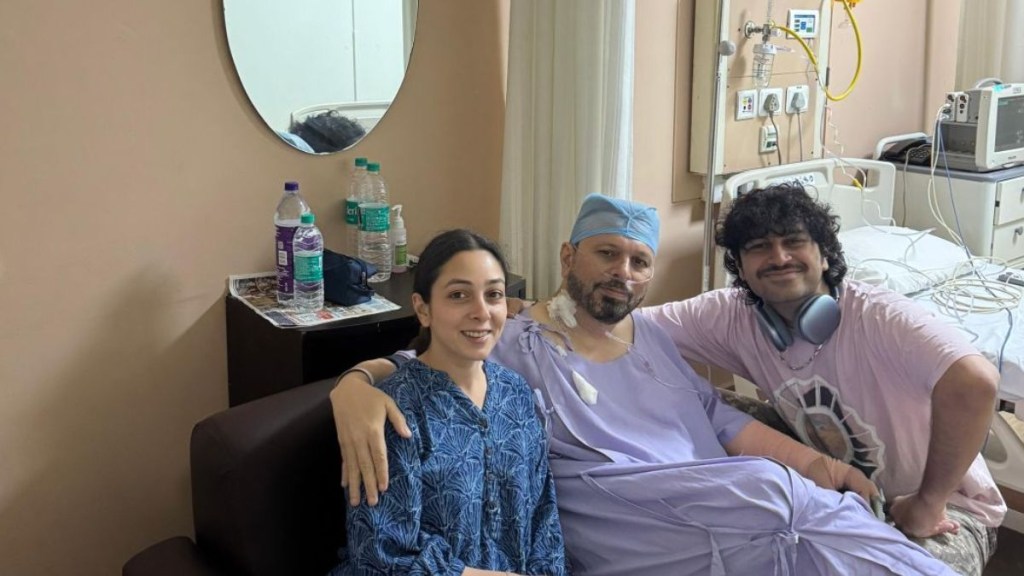Roshan Abbas, a well-known creative entrepreneur and investor, had a traumatic experience when a sudden spike in blood pressure landed him in the emergency room on July 7. Taking to LinkedIn, he shared how the day began with nothing more than mild chest pain, “nothing dramatic.” His ECG looked “normal,” and he was about to be sent home when doctors decided to run one more test. That decision changed everything.
What is a troponin test?
The additional test was a troponin test, a blood test that measures levels of troponin proteins released into the bloodstream when the heart muscle is damaged. It is considered one of the most reliable and early warning signs of a heart attack, often detecting issues even when an ECG appears normal.
But why is the test so crucial? We got in touch with Dr. Purabi Koch, Consultant, Non-Invasive Cardiology, Kokilaben Dhirubhai Ambani Hospital, Mumbai, who said, “The troponin test can pick up heart muscle injury at a very early stage, sometimes even before an ECG shows clear changes. For patients with mild or unusual symptoms, it can be a lifesaver.”
She further added that in Mr Abbas’s case, the troponin test played a pivotal role in timely diagnosis. Without it, his blockages might have gone unnoticed until it was too late.”
The troponin test, which was followed by an angiography, revealed a shocking truth, where doctors shared that Abbas had seven blockages, ranging from 60 to 90 per cent. “No stenting possible. Surgery was non-negotiable,” he wrote in his post. What followed, he recalled, was a blur of consultations and hospitals offering drastically different solutions. One private hospital quoted nearly Rs 30 lakh for bypass surgery with a surgeon described as having ‘golden hands.’ Another proposed a traditional open-heart surgery costing between Rs 15 to Rs 20 lakh, with a long recovery time of three months.
Finally, after thorough research and guidance from close friends, Abbas chose to undergo a robotic, minimally invasive bypass surgery in Bengaluru at Sakra World Hospital under Dr Adil Sadiq. The procedure, he shared, cost him Rs 11.5 lakh, with total expenses including travel, hotel, and post-operative care amounting to under Rs 14.5 lakh.
Abbas revealed that he was walking within two days of the surgery, moved out of the ICU by the third day, was discharged by the fifth, and was recovering in a hotel, rather than a hospital bed, by the sixth day.
Lessons learnt from his case
Importance of routine check-ups
Abbas shares from his experience why routine check-ups are important, even for those who believe they are perfectly healthy. He pointed out that many assume fitness routines like swimming or EMS workouts guarantee a healthy heart, but serious conditions can remain silent until discovered by specific tests. Dr. Pravin Kahale, Consultant, Cardiology, Kokilaben Dhirubhai Ambani Hospital, Mumbai, explains that even if you’re “fit,” even if you do outdoor workouts, or have no major symptoms, many cases of high blood pressure remain silent until complications arise. Hence, at least once in 3-4 months, you must get routine check-ups done,” he further said.
“Silent cardiac conditions can affect even the most fit people, whether they regularly swim, train with EMS, or lead active lives. Regular examinations are a proactive safeguard. Specific cardiac examinations like TMT, ECHO, Stress ECHO add upon scientific ways of preventive diagnosis rather than just physical parameters of fitness,” Dr. Neerav Bansal, Director – Cardio, Thoracic Vascular Surgery (CTVS), Max Super Speciality Hospital, Vaishali said.
The European Journal of Preventive Cardiology showed that regular screenings in people helped prevent sudden cardiac deaths.
Why does a second opinion matter?
In his post, Abbas also explained the importance of second opinions, explaining that he might never have found the minimally invasive option had he stopped at the first hospital. Dr. Kahale explains that seeking a second opinion can make a huge difference. “It helps confirm your diagnosis, rule out hidden risks, and often provides a better treatment approach. In matters like hypertension, where every number counts, a fresh expert perspective is never a bad idea,” he said.
What do you need to know to find the right kind of package for the bypass?
When choosing the right health check-up package, especially before a major procedure like a bypass, it’s important to know what preventive screenings should include. Dr Kahale shares that comprehensive packages typically cover vital checks like blood pressure, heart rate, and BMI; blood and urine tests to detect issues such as diabetes, cholesterol, thyroid, kidney, and liver problems; as well as heart-specific evaluations like ECGs, stress tests, and echocardiograms. Depending on age and risk factors, cancer screenings such as Pap smears, mammograms, or PSA tests may also be advised, along with imaging scans, dental and eye exams, and lifestyle assessments.
He further explains that preventive check-ups can detect “silent killers” like hypertension and diabetes early, help identify heart disease and cancer risks, and provide advice on diet, exercise, and medication. While recommended for everyone, even those who feel healthy, the frequency usually depends on age, family history, and existing health conditions.







